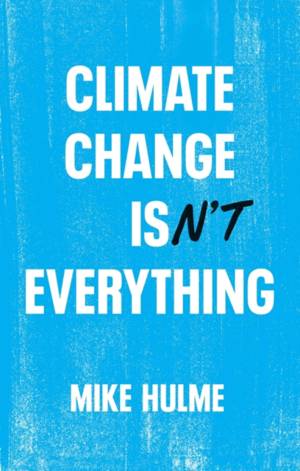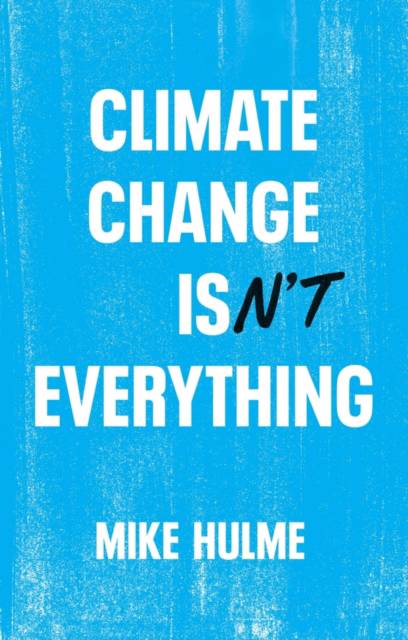
- Afhalen na 1 uur in een winkel met voorraad
- Gratis thuislevering in België vanaf € 30
- Ruim aanbod met 7 miljoen producten
- Afhalen na 1 uur in een winkel met voorraad
- Gratis thuislevering in België vanaf € 30
- Ruim aanbod met 7 miljoen producten
Zoeken
Climate Change Isn't Everything
Liberating Climate Politics from Alarmism
Mike Hulme
Hardcover | Engels
€ 94,95
+ 189 punten
Uitvoering
Omschrijving
The changing climate poses serious dangers to human and non-human life alike, though perhaps the most urgent danger is one we hear very little about: the rise of climatism. Too many social, political and ecological problems facing the world today - from the Russian invasion of Ukraine to the management of wildfires - quickly become climatized, explained with reference to 'a change in the climate'. When complex political and ethical challenges are so narrowly framed, arresting climate change is sold as the supreme political challenge of our time and everything else becomes subservient to this one goal.
In this far-sighted analysis, Mike Hulme reveals how climatism has taken hold in recent years, becoming so pervasive and embedded in public life that it is increasingly hard to resist it without being written off as a climate denier. He confronts this dangerously myopic view that reduces the condition of the world to the fate of global temperature or the atmospheric concentration of carbon dioxide to the detriment of tackling serious issues as varied as poverty, liberty, biodiversity loss, inequality and international diplomacy. We must not live as though climate alone determines our present and our future.
In this far-sighted analysis, Mike Hulme reveals how climatism has taken hold in recent years, becoming so pervasive and embedded in public life that it is increasingly hard to resist it without being written off as a climate denier. He confronts this dangerously myopic view that reduces the condition of the world to the fate of global temperature or the atmospheric concentration of carbon dioxide to the detriment of tackling serious issues as varied as poverty, liberty, biodiversity loss, inequality and international diplomacy. We must not live as though climate alone determines our present and our future.
Specificaties
Betrokkenen
- Auteur(s):
- Uitgeverij:
Inhoud
- Aantal bladzijden:
- 208
- Taal:
- Engels
Eigenschappen
- Productcode (EAN):
- 9781509556151
- Verschijningsdatum:
- 31/07/2023
- Uitvoering:
- Hardcover
- Formaat:
- Genaaid
- Afmetingen:
- 142 mm x 218 mm
- Gewicht:
- 385 g

Alleen bij Standaard Boekhandel
+ 189 punten op je klantenkaart van Standaard Boekhandel
Beoordelingen
We publiceren alleen reviews die voldoen aan de voorwaarden voor reviews. Bekijk onze voorwaarden voor reviews.











